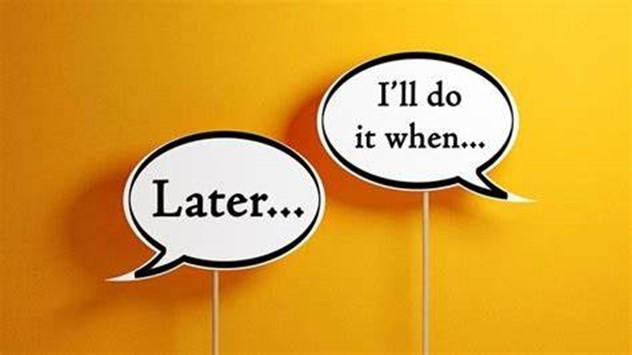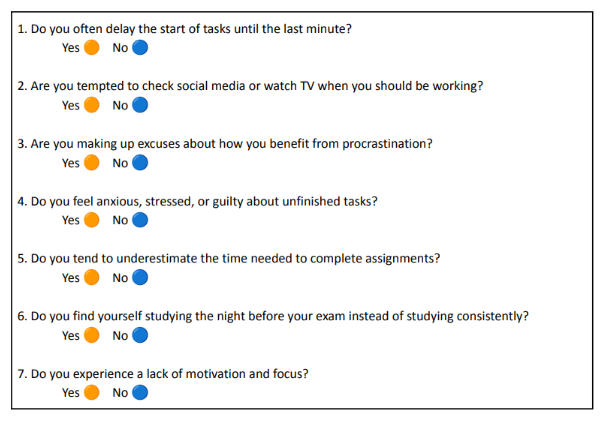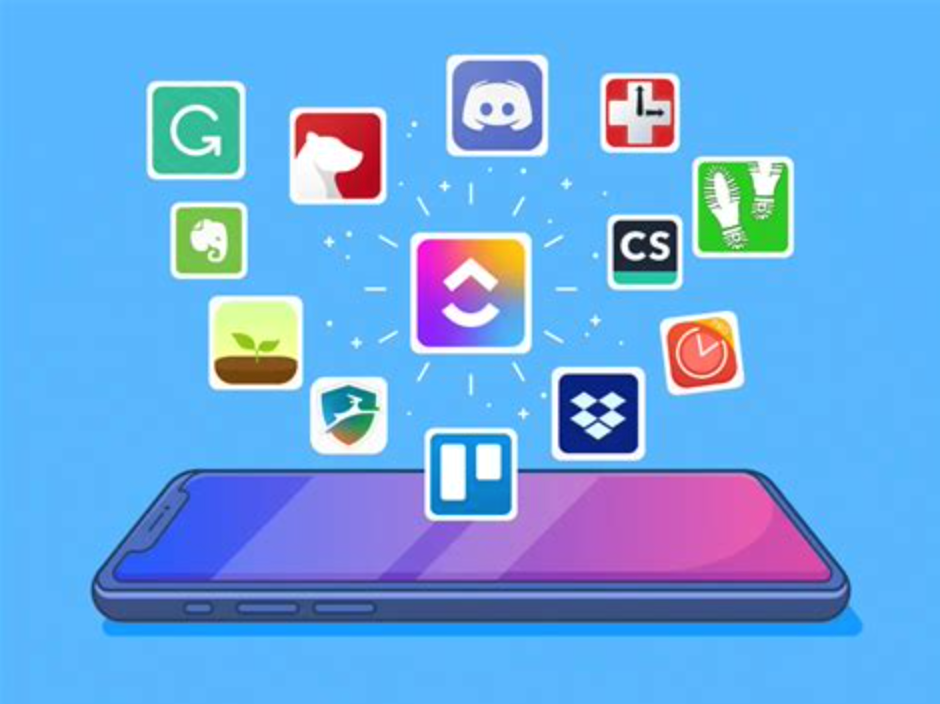


Studenten van het vak Digital Mental Health schreven per twee een blogpost. Je kan hier de beste drie posts van het academiejaar 2023 - 2024 vinden.
By Julie Klaps & Marieke Weiß
Have you ever been caught in the never-ending cycle of #procrastination? You’re in it right now and somehow ended up reading this #blog? Well, if you ever wanted to change your habits: #Today is the day! Say goodbye to #last-minute cramming and hello to #success! #BeatTheDeadline
Procrastination is a well-known enemy for many university students. It's that irresistible urge to put off assignments, studying for exams or important tasks until the very last minute. While procrastination might offer fleeting relief from the stress of impending deadlines, it often comes at a steep price. The impact on students' mental health can be severe, leading to increased stress, overwhelming pressure, and anxiety (Afzal & Jami, 2018; Lay & Schouwenburg, 1993). But, fear not! We'll dive into what procrastination is, how you notice it in yourself, and how the right mental health apps can help you overcome this persistent problem.

Procrastination is the act of delaying or postponing tasks that require immediate attention. It's not a lack of knowledge or ability but a psychological behavior rooted in emotional and cognitive processes (TED-Ed, 2022). Many students find themselves procrastinating, even when they know it's detrimental to their academic performance and overall well-being. You want to know if you belong to #teamprocrastination? Answer the questions below and quickly check your habits!

If you have answered 4 or more times with YES then welcome to #teamprocrastination! You are one of many students fighting the battle of procrastination. But no worries, we’ve got you covered!
We want to explore why students tend to procrastinate since it is crucial for finding effective solutions for specific procrastination types. First of all, perfectionism can hinder students’ performance, if they try to deliver their work at the highest standards (Hollender, 1965). The fear of not meeting high personal quality criteria can paralyze students, leading them to put off tasks rather than risk failure. Furthermore, a lack of self-discipline can get in their way. Some individuals struggle to self-regulate and maintain their focus, making it challenging to tackle tasks consistently (Krause & Freund, 2016). Similar effects show when a task is perceived as unpleasant or boring. Students may avoid it, opting for more enjoyable activities instead (Afzal & Jami, 2018). Lastly, they might feel overwhelmed by the sheer volume of tasks. Large assignments or multiple deadlines can trigger procrastination. When combined with poor time management, inadequate planning skills can lead to procrastination as students may struggle to allocate their time effectively (Lay & Schouwenburg, 1993).

To find a solution that suits your individual procrastination habits, let’s have a closer look at mental health apps. The digital age has brought forth a wealth of resources to combat procrastination and boost mental health. Mental health apps, designed to aid students in overcoming procrastination, offer numerous benefits. Here's how they could be a game-changer for you:
Procrastination is a common struggle among university students, impacting their mental health, increasing stress, and generating unnecessary pressure. Recognizing the symptoms of procrastination and understanding the underlying reasons can be the first step in overcoming this issue. With the help of mental health apps, students can equip themselves with powerful tools to boost their productivity, manage time effectively, and reduce the detrimental effects of procrastination on their mental well-being. So, why wait? Download a procrastination-busting app today and take the first step towards a
more productive, stress-free, and fulfilling university life. Your future self will thank you!
! For further input check out The ONLY Way To Stop Procrastinating | Mel Robbins or
follow this link to Mel Robbins’ full podcast episode on how to stop procrastination
https://open.spotify.com/episode/0p3EZFRsuGruzjj7IQwf9P?si=4d92d26b4bf5…